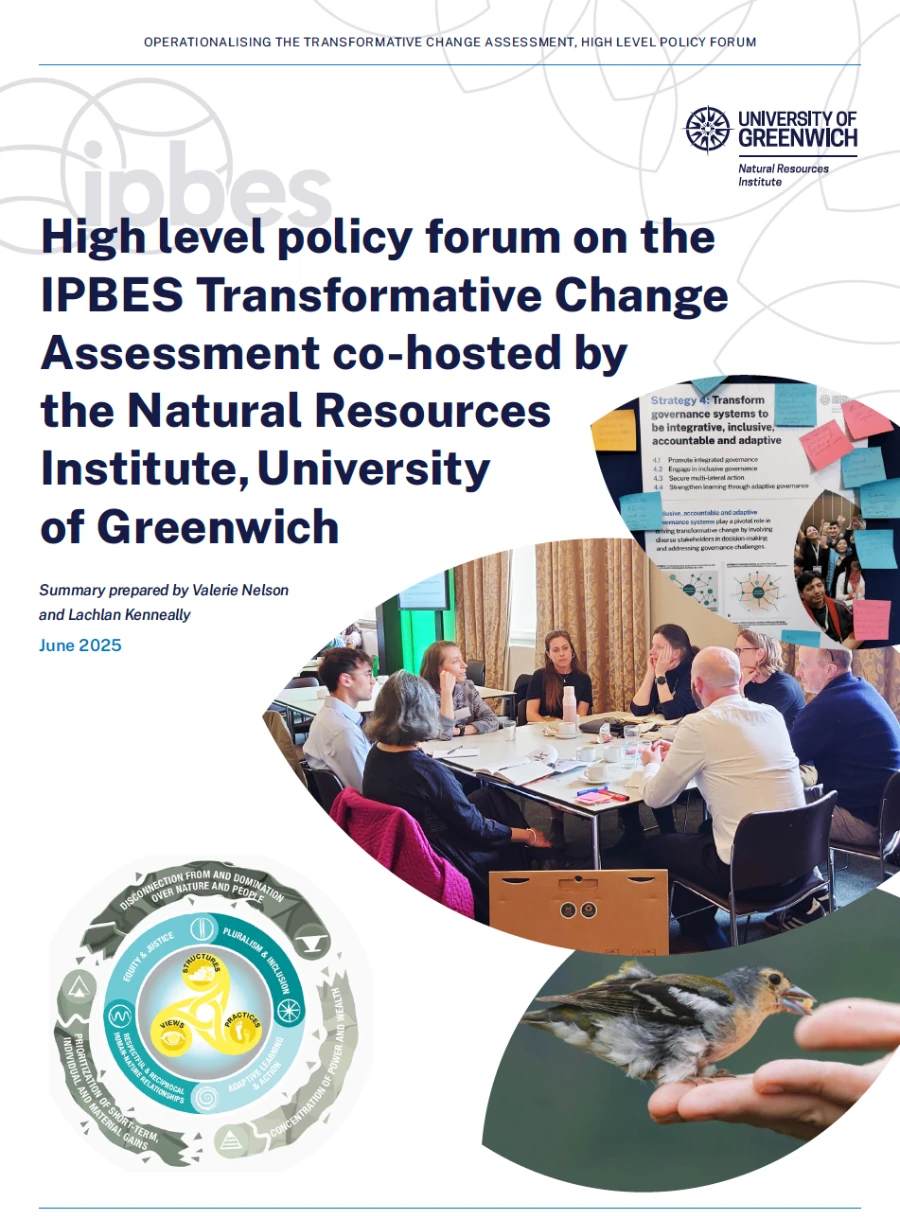
Following the high-level policy forum on the Intergovernmental Science-Policy Platform on Biodiversity and Ecosystem Services (IPBES) Transformative Change Assessment (TCA), co-hosted earlier this year by NRI and the Department for Environment, Food and Rural Affairs (Defra), a forum report has been released that distils key messages and actionable recommendations for governments, agencies, and civil society organisations.
The report captures the outcomes of the national forum, which brought together policymakers, NGOs, researchers, and artists to explore how the findings of the global IPBES Transformative Change Assessment can be translated into meaningful policy and practice. It outlines strategies for operationalising transformative change to address biodiversity loss and drive systemic reform across economic, governance, and social systems.
Importantly, the recommendations were shared with Defra to inform discussions at the 27th meeting of the Subsidiary Body on Scientific, Technical and Technological Advice (SBSTTA) of the Convention on Biological Diversity (CBD), which took place from 20 - 24 October 2025 in Panama City.
The report emphasises that achieving transformative change requires a fundamental shift in how societies understand and interact with nature. It calls for a move beyond narrow scientific or economic framings to recognise the plural ways of knowing and valuing nature, including Indigenous knowledge systems, cultural perspectives, and local experiences. This broader understanding, it argues, is essential to tackling the underlying social and institutional drivers of biodiversity loss.
Equally, the document highlights the importance of shifting from relations of domination to relations of care, urging systemic reforms that address unsustainable economic models and power imbalances that perpetuate environmental decline. Democratic governance and citizen participation emerge as central pillars of this change, alongside the inclusion of marginalised voices such as Indigenous Peoples, and youths. The report also points to the value of arts, storytelling, and education in transforming social narratives, inspiring empathy for nature, and mobilising collective action.
Among the report’s practical recommendations are reforms to financial systems and subsidy regimes that currently incentivise environmental harm, and the integration of biodiversity considerations across all areas of government decision-making including treasury and trade, education and health. It also advocates for expanded citizen engagement through deliberative democracy, recognition of Indigenous rights and community stewardship, and stronger cooperation between international environmental conventions to align biodiversity and climate action.
The full report, High level policy forum on the IPBES Transformative Assessment co-hosted by the Natural Resources Institute, University of Greenwich is available here (PDF link 1.899 MB).

